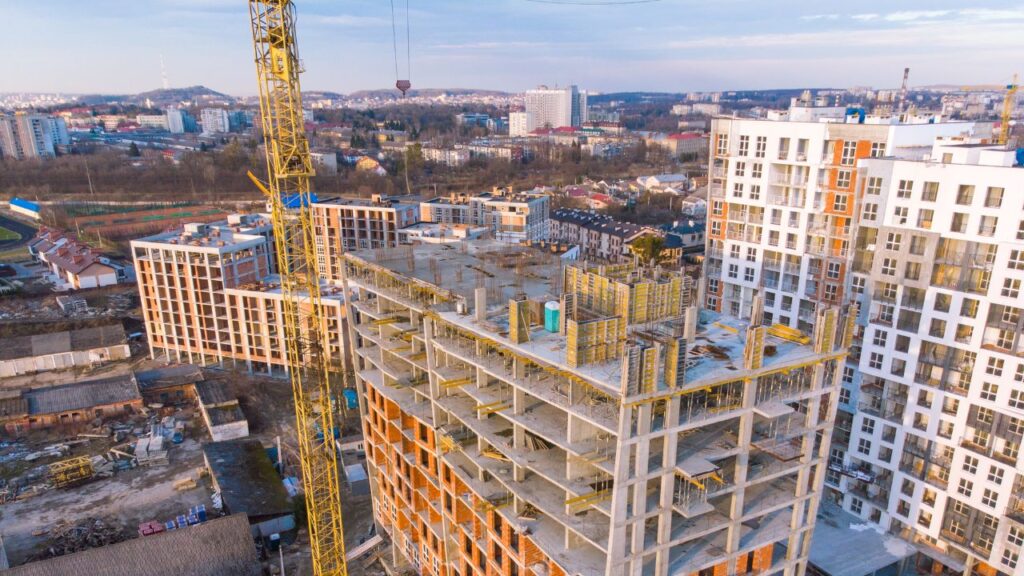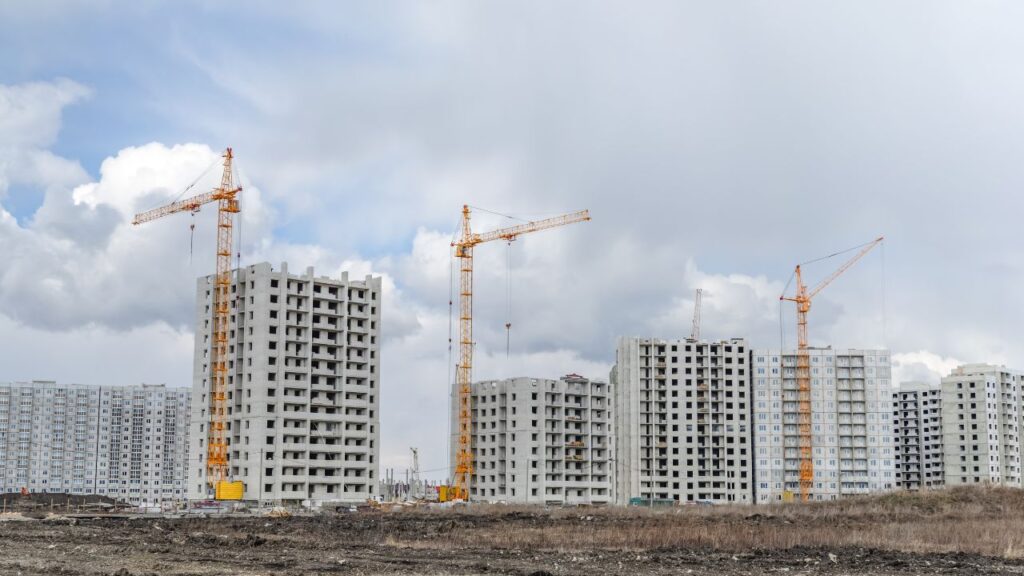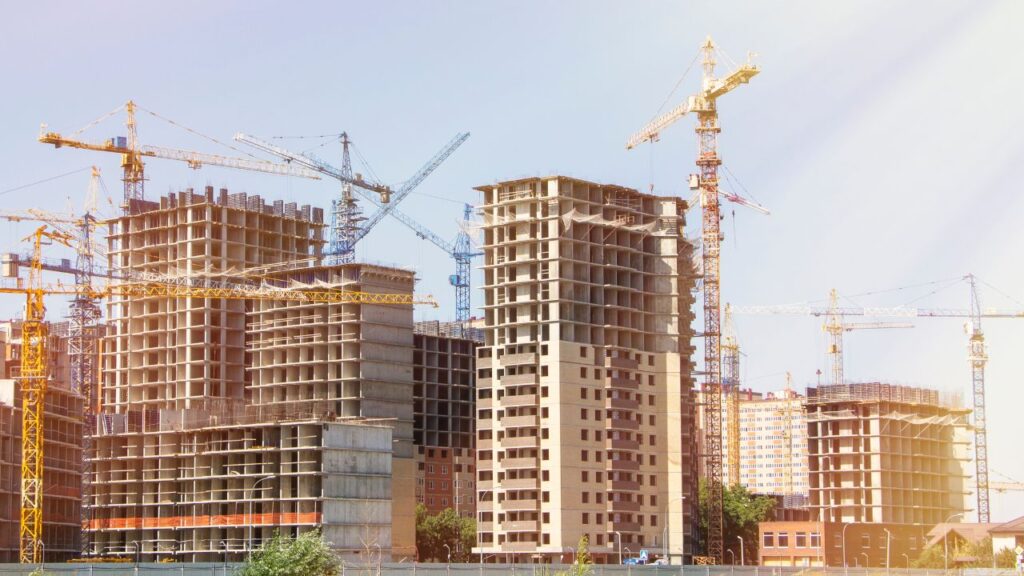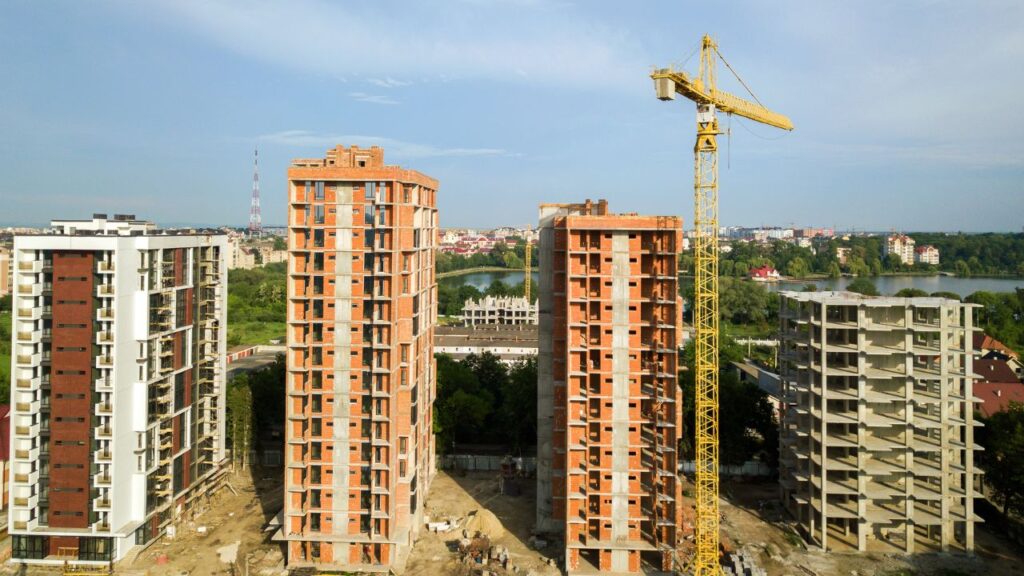A Wining Cost Estimate
That Helps You To Win More Construction Projects

Estimating expenses for building residential foundations is key for construction planning. It helps with budgeting and understanding the potential investment.
For a comprehensive overview, check out the table below. It includes factors like site prep, excavation, concrete pouring and finishing, material prices, and labour expenses.

| Expense Category | Description | Estimated Cost ($) |
|---|---|---|
| Site Preparation | Clearing vegetation, leveling, and site survey | 2,500 |
| Excavation | Excavating the foundation area | 3,000 |
| Foundation Design | Structural engineering and architectural plans | 5,000 |
| Concrete Pouring | Pouring and forming the foundation | 10,000 |
| Reinforcement | Steel rebar and mesh for reinforcing the concrete | 3,500 |
| Concrete Finishing | Finishing the concrete surface | 2,500 |
| Waterproofing | Applying waterproofing membrane and drainage systems | 4,000 |
| Drainage System | Installing drainage pipes and backfilling | 2,000 |
| Backfilling | Filling excavated areas with suitable soil | 1,500 |
| Material Prices | Cement, aggregates, formwork, and other construction supplies | 6,000 |
| Labour Expenses | Hiring skilled labor for construction and supervision | 12,000 |
| Miscellaneous Expenses | Permits, inspections, equipment rentals, and contingencies | 5,000 |
| Total Estimated Cost | 57,000 |
Foundation construction cost estimation has several details to consider. These details involve area demographics, soil quality, weather patterns, and local building codes.
According to The National Association of Home Builders, the cost varies by location and type of foundation. In high-cost areas such as New England or California it’s around $25 per square foot. In other locations like the Midwest, it’s slightly lower at $15 per square foot.
Soil characteristics and site accessibility can heavily influence the cost of foundation construction, just like a bad relationship.

To estimate the cost of foundation construction for your residential building, you need to consider various factors that affect the final price. In this section, we will discuss the crucial factors that determine the cost of foundation construction with a focus on soil condition, type of foundation, building size and weight, depth of foundation, location, and accessibility.
The ground beneath affects the cost of building a foundation. Consistency, composition, and moisture level all matter. Dealing with soil that retains water can be tricky, as it swells and shrinks with environmental changes. Extra costs come from stopping structural damages. Before starting, contractors must clear out debris, such as tree roots and rocks. Without evaluating the ground, costly fixes later may be needed. It saves time and money to analyze factors beforehand. It’s important to be informed and consult experts before starting to prevent future issues. Don’t forget, choosing the right foundation is the real soulmate search of construction!
Foundations come in many types and materials, influencing their cost. Soil type, climate, terrain, building size, and more are all factors in what kind of foundation is used. Plus, location, access to the site, and project duration can also play a role.
This table outlines different foundation types, materials used, and what it costs per square foot for a single-story residence:
Type of Foundation | Materials Used | Avg Cost per Sq Ft |
|---|---|---|
Strip | Concrete | $6-$8 |
Slab-on-grade | Concrete | $4-$7 |
Pier-and-beam | Wood | $10-$15 |
Basement | Concrete | $10-$20+ |
Unique conditions like soil type and slope may mean extra work, like grading or excavation, which adds to the cost.
According to HomeAdvisor, on average in the US, folks spend $4,400 to $12,000 for foundation work for a single-story residence in 2021. It seems that bigger foundations come with bigger costs!
The dimensions and weight of a building are critical for the cost of its foundation construction. The foundation must be able to bear the whole structure, and larger or heavier buildings need more tough foundations.
To get a clearer idea of the effect of building size and weight on foundation cost, we made a table with factual data. This confirms that as the size and weight of the building grows, so does the cost of its foundation construction. Plus, skyscrapers need deep foundation systems such as piles or caissons, which significantly raise the total cost.
It’s important to know that other factors also affect foundation costs, like soil type and excavation needs. However, building size and weight are still the most influential factors in deciding foundation construction costs.

Don’t be careless when it comes to planning for your foundation needs. Take time to assess your building’s specifications first to dodge any pricey surprises later. Understanding each factor that affects the cost of your project is a must for a successful construction process. Going deeper for a sturdy foundation might cost more, but who doesn’t love a lil extra depth?
The depth of a foundation impacts its cost. Deeper foundations mean higher costs due to more labor and material needed. This is because excavation, reinforcement, and concrete are needed to support the structure.
Building on soil with low bearing capacity requires deeper foundations. But, building on strong ground could mean shallower foundations. This could reduce costs.
When excavating, there could be different layers of soil with varying densities. This affects how deep the foundation needs to be. It affects the cost too.
A structural engineer once shared an experience. They had planned for a shallow foundation. But, soil tests revealed softer soils below 10 meters. So, they redesigned and constructed a deeper foundation. This increased costs, but was necessary for the safety and stability of the building.
Remote locations can be hard to build in. It’s like looking for a needle in a mountain-sized haystack. Except the needle is a construction crew.

The geographic area and how easy it is to get to, both affect the cost of building foundations. Places that are far away need more resources to transport materials, equipment and labour. Places which can be accessed by larger vehicles and ships are cheaper, as loading and unloading can be done faster without specialised vehicles or tools. Prices can also be affected by indirect costs like accommodation for staff. Good transportation links within the area help to reduce costs.
The cost of the foundation also depends on how close it is to existing infrastructure, like water mains and electricity grids. Ones further away will cost more due to the added expense of connecting them.
There are also other factors to consider, such as the ground conditions. Types of soil like silt or sand can cause the foundations to not carry as much weight. Clearing up waste, rocks etc. is necessary before the actual work can start.
According to HomeAdvisor, an online resource for homeowners, “the average cost to build a foundation is $9,257”. Estimating the cost of foundation construction is a bit like playing poker – you need a good poker face and a good understanding of the game.
To estimate the cost of foundation construction for your residential building project, you need to determine which method works best for you. Contractor estimates, cost per square foot calculation, unit price estimation, and customized estimates based on site-specific conditions are all effective ways to estimate the cost of foundation construction.
Contractors estimate a range of factors that can affect a project’s budget. They consider site prep, materials, labor, permits and equipment. This analysis allows them to provide an estimate that matches client expectations while maintaining their own financial sustainability.
They think about the soil needed for the foundation, possible environmental hazards, setbacks from property lines and other obstacles. They also list costs associated with construction, such as permits, equipment and labor.
Unexpected expenses are also taken into account. Delays may cause costs to go up or down. It’s important for clients to find reliable partners they can trust. Projects can cost hundreds of millions of dollars, so both parties need to negotiate an agreement based on transparency and trust.

Calculating the cost per square foot of foundation construction is like trying to put a price on a feeling.
Exploring estimation methods for foundation construction reveals an important aspect: calculating the cost per unit area. This helps in deciding the budget and what works best for various project demands. See the Table below for Cost Per Square Foot Calculation:
Foundation Type | Cost per Square Foot |
|---|---|
Basement | $25 – $50 |
Crawlspace | $15 – $30 |
Slab-on-Grade | $8 – $12 |
Pier and Beam | $20 – $40 |
Soil composition, drainage, groundwater levels, etc. can further decide foundation construction costs. Other factors such as material selection, labor charges, and equipment usage also influence total expenditure.
To manage foundation construction costs, try investing in quality materials, carrying out regular preventative maintenance on foundations, and hiring a professional engineer or contractor. Regular inspections help in spotting potential issues that could lead to expensive repairs or replacements.
Calculating foundation construction cost is like trying to predict the weather. Unit price estimation is a great starting point though.

Estimating foundation costs? It’s like playing Russian roulette! You must dodge unexpected site conditions, so Unit Price Estimation is key.
Constructing a Table is the way to go. Columns like Item, Quantity, Unit Price, Total Cost will show you what to know.
Research is essential. Factors like soil conditions, location, and labor costs can affect your estimates. The True History of Unit Price Estimation is its use on commercial construction projects, meaning all components are accounted for and total expenses are understood.
Customized cost estimates for foundation construction can be more accurate. These take into account site-specific conditions, which can significantly influence costs like excavation and materials. To create an estimate, contractors must assess each aspect of the build site.
Soil type is a major factor, but not the only one. Water table depth and makeup can require extra materials and equipment. Weather and access points must also be considered. Even minor differences between sites can create large discrepancies. Attention to detail is essential to ensure accurate budget estimates.
Historically, failure to consider site-specific conditions has resulted in double-digit budget increases. But modern advances now make it possible to produce highly precise cost projections, resulting in lower overall development costs. Be prepared for additional cost considerations!
To consider additional costs associated with foundation construction for residential buildings, turn your attention to the site preparation and excavation, reinforcement and waterproofing, inspection and compliance with building codes, as well as project management and contingency funds. These sub-sections will help you tackle important aspects of foundation construction that could affect the final cost.
Site prep and ground excavation are must-dos for building a foundation. Here’s a 3-step guide:
Materials for excavation can be pricey, especially on difficult terrain, like hills or rocky soil. Costs also include disposing of excavated debris and waste.

To save money, hire pros with specialized machinery who can handle complex terrains. Also, do an initial survey of the ground to uncover hidden issues like groundwater tides that need extra measures before starting construction. And don’t forget the waterproofing!
When it comes to protecting foundations, steel bars or mesh must be used for reinforcement. This prevents cracking and damage. To stop water seepage and erosion, waterproofing materials like membranes or coatings can be added.
These solutions may cost more upfront but can save money in the future. High-quality reinforcement and professional-grade waterproofing materials can keep a foundation strong for years.
Experts suggest that proper reinforcement techniques have lasting effects on a structure (Razmjoo et al., 2018). So, investing in these additions can provide safety and longevity. Building codes must be followed to avoid potential collapse.
Maximize your construction business’s potential with our competitive financing options

Ensuring compliance and inspection of building codes is essential for foundation construction. Local authorities check the structure’s strength and safety once it’s finished. This requires regular site visits by designated personnel. Relevant permits also ensure that the construction adheres to seismic design ratings and load-bearing capacity standards. Inspecting quality control measures enables early diagnosis of any potential issues, minimizing risks.
In addition to compliance and inspections costs, builders must factor in soil testing. Soil bearing capacity reports provide information on how much weight the ground can bear without settlement. These tests should be done in the initial project phase as they affect foundation sizes and costs.
Another key aspect is drainage systems. Excess water can weaken foundations or cause structural corrosion. It’s important to install waterproof coatings, slope catches, and downspouts with underground pipes to prevent water leakage. This will avoid costly repairs.
To maintain structural integrity while minimizing expenses, project planning follow-up mechanisms must be taken seriously. Establishing budgets before starting and maintaining open communication between contractors and stakeholders ensures everyone is aware of the project’s progress. This helps avoid cost overruns or unexpected expenses. Contingency funds are like a parachute in project management – it’s better to have it just in case.

Efficient management and financial uncertainties add to project costs during foundation construction. So, it’s key to set up funding for unexpected contingencies.
Financial planning starts with budgeting. Allocate funds for unforeseen costs like bad weather or delays.
Each project has unique specs and conditions, which could increase costs. For example, underground soil layers might have higher water tables or rocky subsoil.
It’s essential to assess budget vs actuals throughout construction. Discrepancies must be investigated and fixed.
To handle extra costs, devise a risk mitigation plan. Explore cost-efficient options for materials and labor. Optimize site management processes.
Proactive planning with effective communication and cost assessment reviews will stop unnecessary expenses.
Inaccurate cost estimation leads to costly foundation failure.
Accurate cost estimation is essential for successful foundation construction projects. An inaccurate estimate may result in project failure and extra expenses. This process involves evaluating factors like soil type, location, and structure design to obtain a precise estimate. Assessing these variables thoroughly is key to ensuring the foundations are adequate for the building.
It is also vital to consider external aspects that could affect cost estimates, such as labour rates and material costs. Accurate cost estimation helps manage budgets, secure financing, and prevent issues from underestimating expenses.
Effective communication between contractors and clients is crucial during the estimation process, since clients need thorough explanations of issues like timelines and projected costs.
Inadequate estimates can have serious repercussions; for example, when builders constructing a house on a rocky terrain did not factor in unique site-specific challenges, it caused considerable additional construction expenses later.
Accurate cost estimation in foundation construction projects is highly important. It helps avoid costly issues while making sure the project is finished on time and within budget.
Several factors affect the cost of foundation construction, including the type of foundation, the size of the building, the type of soil, and the location of the building.
The cost of foundation construction varies depending on several factors. However, the average cost for a simple concrete foundation can range from $10,000 to $20,000.
To estimate the cost of foundation construction, you need to consider the size of the building, type of foundation, and soil conditions. You can also consult with an experienced contractor who will give you an accurate estimate based on the specifics of your project.
Yes, you can save money on foundation construction by opting for a simpler foundation, reducing the scope of your project, and buying materials in bulk.
The time it takes to complete foundation construction depends on the scope of the project and the weather conditions. On average, it can take between four to six weeks to construct a foundation for a residential building.
No, it is not recommended to build a house without a foundation as the foundation provides the necessary support for the entire house. A house without a foundation would be unstable and unsafe.
Here I am going to share some steps to get your construction cost estimate report.
You can send us your plan on info@estimatorflorida.com
Before starting your project, we send you a quote for your service. That quote will have detailed information about your project. Here you will get information about the size, difficulty, complexity and bid date when determining pricing.
We do construction cost estimating and prepare a detailed report for your project. At last, you finalize the report and finish the project.
561-530-2845
info@estimatorflorida.com
Address
5245 Wiles Rd Apt 3-102 St. Pete Beach, FL 33073 United States
561-530-2845
info@estimatorflorida.com
Address
5245 Wiles Rd Apt 3-102 St. Pete Beach, FL 33073 United States
All copyright © Reserved | Designed By V Marketing Media | Disclaimer
IMPORTANT: Make sure the email and cell phone number you enter are correct. We will email and text you a link to get started.
By clicking “I Agree” above you give Estimate Florida Consultin express written consent to deliver or cause to be delivered calls and messages to you by email, telephone, pre-recorded message, autodialer, and text. Message and data rates may apply. You are able to opt-out at any time. You can text STOP to cancel future text messages.